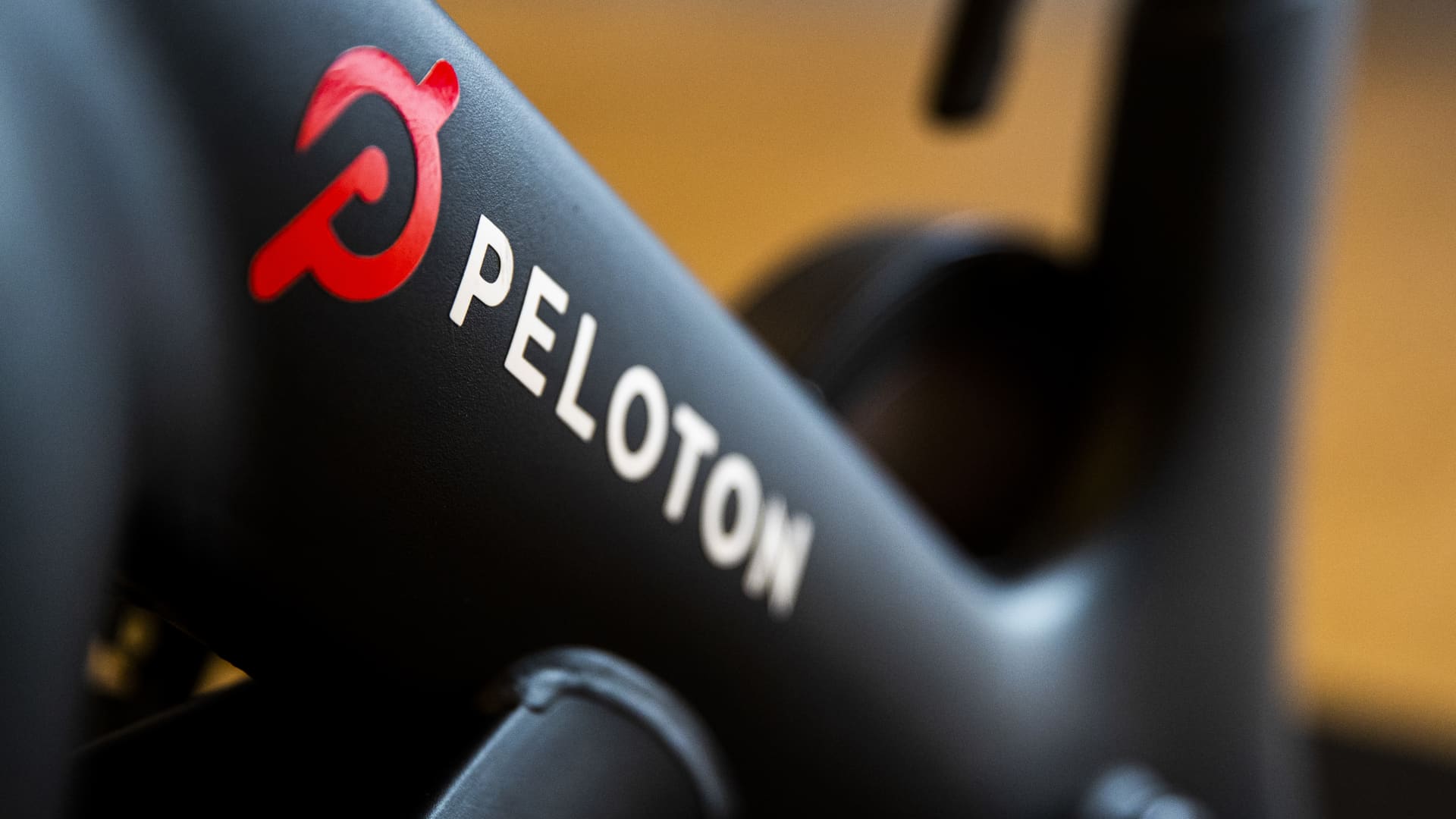Products You May Like
Peloton said Tuesday it plans to exit all of its in-house manufacturing and instead will expand its current relationship with Taiwanese manufacturer Rexon Industrial, in a bid to turn the money-losing business around.
Peloton Chief Executive Officer Barry McCarthy said this is a step for the company to simplify its supply chain and fix its cost structure, which is a top priority.
“We believe that this along with other initiatives will enable us to continue reducing the cash burden on the business and increase our flexibility,” McCarty said in a statement.
Peloton shares climbed more than 6% in premarket trading.
Peloton said Rexon is now set to become the primary manufacturer of Peloton’s Bike and Tread machines. The company is also going to be suspending operations at its Tonic Fitness facility through the remainder of 2022. Peloton acquired Tonic in October 2019.
The company did not disclose any financial impact in its press release. It also wasn’t immediately clear what this meant for Peloton’s Precor business, which it bought for $420 million in order to expand its manufacturing capabilities in the United States.
McCarthy, a former Spotify and Netflix executive, was named CEO of Peloton in early February, succeeding founder John Foley. He took over as the company’s expenses spiraled out of control and demand for its connected fitness equipment waned.
At that time of the C-suite shake-up, Peloton announced it was slashing roughly $800 million in annual costs. That included cutting 2,800 jobs, or about 20% of corporate positions. Peloton also said it would be walking away from plans to build a sprawling production facility in Ohio.
CNBC reported in January that Peloton planned to temporarily halt production of its equipment, according to internal documents detailing those plans, as a way to control costs with demand dropping.
One of Foley’s biggest missteps was making long-term bets on Peloton’s supply chain during the peak of the Coronavirus pandemic, as stuck-at-home consumers were eager to shell out hundreds of dollars for ways to break a sweat in the living room or garage.
The dynamic quickly reversed, however, as Covid vaccines were made widely available and gyms and indoor fitness studios were able to reopen without so many restrictions.
From the start of his reign, McCarthy has made it clear he is more interested in Peloton as a subscription business than as a manufacturer.
Already, he has raised prices of Peloton’s all-access fitness membership and is testing a new model where customers can pay a flat rate to rent a piece of equipment and take its on-demand workout classes.
He’s also been tasked with trying to boost employee morale, particularly with the company’s share price under so much pressure. Peloton’s stock is down more than 75% so far this year, as of Monday’s market close.
Last week, employees at the company learned that Peloton is offering one-time cash bonuses to hourly workers who stay on through early next year and is making changes to its stock compensation plans, given the share price.
“Pivoting away from owned manufacturing is likely the right move,” said BMO Capital Markets analyst Simeon Siegel, who added that McCarthy appears to be trying to “reverse past mistakes” from the Foley era. Foley is executive chairman of Peloton.
“There will clearly be savings,” Siegel said. “But given the state of Peloton’s balance sheet, it is worth questioning what it costs to unwind and what else needs to be done.”
